We’re sorry, this site is currently experiencing technical difficulties. Please try again in a few moments. Exception: request blocked
Ministère de l'Intérieur et des outre-mer
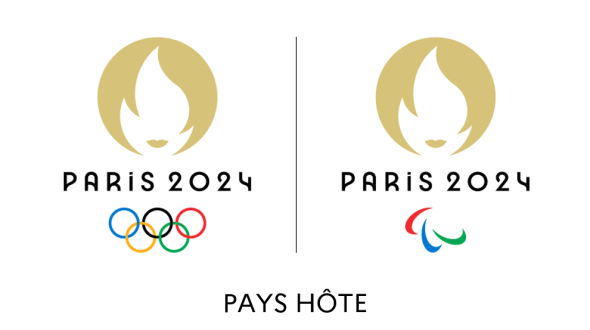
- Paramètres d'affichage

COVID-19 : International travel

Mobilising on a weekly basis up to 6,000 members of the civil security service to carry out tests, border guards to check travellers’ health documents and internal security forces to oversee the isolation or quarantine measures decreed by the prefects, this mechanism was duly adjusted in response to the changing health conditions and Community regulations.
In light of the latest developments in the pandemic, the port health control system has been discontinued, pursuant to the law terminating the emergency measures instituted to combat the COVID-19 outbreak.
Accordingly, the rules previously applied to travellers to France no longer apply effective from 1 August 2022:
- Travellers are now exempt from any formalities prior to entry into France, be it in mainland France or overseas, and no longer required to present a health pass, regardless of the country or place of departure;
- Justification of travel (the “compelling reason”) is no longer required;
- Travellers are no longer required to present a sworn statement of non-contamination and an undertaking to undergo an antigen test or screening upon arrival in the country.
The same applies to travel between mainland France and each of the overseas territories. Similarly, the French authorities no longer require any justification for outgoing travel from France, be it from mainland France or overseas, or any exit clearance to travel to another country.
However, foreign countries may continue to apply specific entry measures and formalities.
As of February 16th 2023, all passengers traveling from China are no longer required to present a negative antigen or PCR test result dated less than 48 hours, or a sworn statement. Random screening on arrival is also discontinued.
It is still recommended to wear a single-use surgical mask on board the aircraft.
Passengers from China making a stopover in a different country to reach France are invited to check the conditions applicable to transits.
Click here to find out more about Overseas Territories Travel.
Suivez-nous sur les réseaux sociaux
Paramètres d’affichage
Travel and Covid-19: Answers to your questions
The entry, exit, and transit requirements for each country may differ greatly. We invite you to check all travel requirements (Covid-19 test, vaccines,...) for the countries through which you are due to transit directly on TravelDoc .

Check the type of test to be performed and its validity period

Check the approved vaccines and their validity requirements
For all other destinations, please review the travel requirements for your flight on TravelDoc .
If you are traveling to or from an international destination and have a connection in Metropolitan France, you must meet the conditions imposed by your destination country.
Please check TravelDoc for the latest information regarding your travel requirements.
The TravelDoc website provides the latest information on travel requirements around the world. Visit TravelDoc
If you are not vaccinated, please make sure to check the travel documents required for your trip on TravelDoc , as rules of entry and exit vary from country to country. For flight to/from France, no test or vaccine is required.
The free and time-saving "Ready to Fly" service allows you to upload all the required health documents for your travel before you arrive at the airport. If your booking is eligible for this service, you will receive an e-mail prompting you to upload your documents to our online platform a few days before your scheduled flight. You can download or print your boarding pass with “Ready to Fly” printed on it after your documents have been checked and approved. You will receive a notification with instructions if you are missing a document or if a document is incomplete. Learn more .
You can reschedule your flight if you test positive for Covid-19 in the days leading up to your trip if you get in touch with our customer service team before your scheduled departure date.
Covid-19 tests
The validity period for Covid-19 tests is short: usually a few days before departure or arrival depending on the country. Visit TravelDoc to find out when to get tested before you travel. For more information on all domestic flights within France and flights to/from Corsica, please visit our FAQ on the health pass in France. Visit TravelDoc
In most cases, the validity of a Covid-19 test is calculated based on:
- The time and date of collection
- The time and date of departure of the first flight of your trip.
However, exceptions are possible. Some countries calculate validity in days, not hours, or flight arrival rather than departure. Please visit TravelDoc to view the latest validity requirements for your trip.
Traveling on a connecting flight?
Please refer to the above information to calculate your test’s validity period. If different validity periods are required for each flight in your booking, the shortest validity period applies from the start of your trip. Visit TravelDoc
The type of Covid-19 test required varies by country. Visit TravelDoc to find out which test you will need to take before you travel. For more information on all domestic flights within France and flights to/from Corsica, please visit our FAQ on the health pass in France. Visit TravelDoc
Testing requirements for children depend on the destination country. Please consult TravelDoc to find out if your child needs to be tested for your trip. Visit TravelDoc
Some countries require a test certificate in digital or printed format, which may include a QR code. This certificate may be different from the result sent by your lab. Visit TravelDoc to verify which document to show at the airport. Visit TravelDoc
Some countries accept a test certificate in English, others require it to be translated into the official language. See TravelDoc for more information. Visit TravelDoc
Vaccines against Covid-19
Some countries exempt vaccinated travelers from having to show a negative Covid-19 test. Check with TravelDoc to see if this applies to you. Remember to check the validity requirements, the type of vaccine allowed and the minimum time required between the last injection and entry into the country. Visit TravelDoc
Some countries exempt vaccinated travelers from quarantine upon arrival. Check with TravelDoc to see if this applies to you. Be sure to check the validity requirements, the type of vaccine allowed and the minimum time required between the last injection and entry. Visit TravelDoc
Authorized vaccines vary from country to country, as do their validity conditions and the minimum time required between the last injection and entry into the country. In addition, some countries require all travelers, even those who have been vaccinated, to take a Covid-19 test or to observe a quarantine upon arrival. See TravelDoc for more information. Visit TravelDoc

- Immigration
Essential Documents for Traveling to France: What to Carry
If you're planning a trip to france, it's essential to have the necessary documents with you. this article provides a list of the documents you need to carry when traveling to france. ensure you have passports, visas, travel insurance, proof of accommodation, and any other relevant identification to make your travel experience smooth and hassle-free..

Key Takeaways:
- Ensure a smooth journey to France by having essential documents: valid passport, Schengen visa, travel and health insurance.
- Provide proof of accommodation, financial means, and return/onward travel ticket when entering France.
- Stay informed about additional health documentation requirements and regularly check for the latest travel updates. Bon voyage!
Essential Documents for Your Trip to France
Are you planning a trip to the picturesque landscapes of France? Whether you’re heading out for a business trip, a romantic getaway, or a cultural adventure, ensuring that you have the correct documentation is essential for a smooth journey. Here’s a handy checklist to prepare you before you say “Bonjour” to France.
Valid Passport
Your passport is the most crucial travel document. For entry into France:
- Ensure your passport is valid for at least three months beyond your planned departure date from the Schengen area.
- Check your passport pages : You should have enough blank pages for stamps upon arrival and departure.
Schengen Visa
Depending on your nationality, you may need a visa to enter France, which is part of the Schengen Area.

- Visa requirements can vary, so it’s important to check your need for a visa well in advance of your trip.
- If required, apply for a Schengen visa , which allows travel between most European countries.
For official guidelines and application procedures, visit the France-Visas website , the official portal for visa applications to France.
Also of Interest:
Portugal visa rules tightened for foreign workers, do foreign youtubers need work authorization in the us, travel and health insurance.
When entering France, you may be asked to show proof of travel insurance .
- Your insurance should cover the entire Schengen zone and expenses up to €30,000.
- Ensure it includes medical coverage and repatriation costs .
Proof of Accommodation
Upon arrival, you might have to provide evidence of where you’ll be staying. This could be:
- Hotel reservations or a rental agreement.
- If staying with friends or family, a letter of invitation from your host.
Proof of Financial Means
During your stay, you might need to demonstrate you have enough funds to cover your expenses. This could include:
- Bank statements.
- Cash in a convertible currency.
- Traveller’s checks.
Return Ticket or Onward Travel
Although not always checked, being able to show a return or onward travel ticket can be required.
- It proves your intent to leave France or the Schengen area after your visit.
Health Documents
Due to health regulations that may change, such as during a pandemic, additional health documentation may be necessary.
- A negative COVID-19 test , a vaccination certificate , or health declaration might be needed depending on the current health situation.
- Check the latest health guidelines on the official French government website or the European Union travel page .
Additional Tips
- Carry photocopies of your documents and keep digital copies accessible online in case of loss or theft.
- Always have some form of identification on you during your travels.
- Check expiration dates well in advance and renew documents if needed.
Ensure you regularly check for the latest travel updates and document requirements prior to your trip, as immigration policies can change.
In conclusion, preparing the right documentation is a step you cannot skip when planning your trip to France. It’s the key to a hassle-free entry and ability to enjoy everything France has to offer, from the delightful cuisine to magnificent sights. Bon voyage!
So, my fellow travelers, don’t forget your passport, visa, insurance, accommodation proof, financial means, return ticket, and health documents when embarking on your French adventure. Check out visaverge.com for more handy travel tips and up-to-date information. Now go forth and savor the croissants, kiss the Eiffel Tower, and bask in the wonders of France! Safe travels, mes amis! 🇫🇷✈️ #visaverge #travelhacks
FAQ’s to know:
FAQ 1: What documentation do I need to travel to France?
- To travel to France, you will need a valid passport that is valid for at least three months beyond your planned departure date. Additionally, depending on your nationality, you may need a Schengen visa. It is important to check your specific visa requirements well in advance of your trip. You may also be required to show proof of travel and health insurance, as well as provide evidence of accommodation and financial means.
FAQ 2: How do I apply for a Schengen visa for France?
- To apply for a Schengen visa for France, you can visit the France-Visas website, which is the official portal for visa applications to France. The website provides guidelines and application procedures based on your specific circumstances and nationality. It is important to apply for the visa well in advance of your trip to allow sufficient processing time.
FAQ 3: What health documents do I need for travel to France?
- The health documents required for travel to France may vary depending on the current health situation, such as during a pandemic. It is recommended to check the latest health guidelines on the official French government website or the European Union travel page. These documents may include a negative COVID-19 test, a vaccination certificate, or a health declaration. Stay informed about any changes in health regulations and requirements prior to your trip.
What did you learn? Answer below to know:
- True or False: A Schengen visa allows travel between most European countries.
- What should your travel insurance cover to enter France?
- What additional health documents might be necessary for entry into France during a pandemic?
Verging Today

New USCIS Rules for H-1B Workers After Layoffs
USCIS issues guidelines for H-1B layoffs impacting immigrant workers at companies like Google and Walmart. Stay informed on visa terminations.
Trending Today
Understanding the july 2024 visa bulletin: a guide to u.s. immigration policies.
The July 2024 Visa Bulletin provides crucial dates for filing…
U.S. Visa Invitation Letter Guide with Sample Letters
Learn how to write an invitation letter for a U.S.…
Thailand Visa-Free Entry for 93 Nations Starting June 2024
Thailand enhances tourism with Travel Simplification: 93 countries now eligible…
H-1B 2025: Will There Be a Second Lottery?
The USCIS announced the completion of the initial H1B 2025…
Top 10 B-1/B-2 Visa Interview Questions with Answers
Prepare for your B-1/B-2 Interview with these 20 sample questions…
Schengen Area Countries: Complete List of 29 Member Nations
Key Takeaways: Imagine stepping into a room where borders vanish,…
How to Fill Form I-589: Asylum Application Guide
Form I-589 is for asylum seekers in the U.S., granting…
Renew Indian Passport in USA: Step-by-Step Guide
Looking to renew your Indian passport in the USA? This…
Australia Subclass 482 Visa: Requirements, Streams, & Application Guide
Key Takeaways: Embarking on a journey to work in Australia…
Passport Expiration Rules: The 6 Month Validity Requirement | Countries List
Learn about passport expiration rules, including the 6-month validity requirement…
Sign in to your account
Username or Email Address
Remember Me
- Skip to main content
- Skip to "About this site"
Language selection
Search travel.gc.ca.
Help us to improve our website. Take our survey !
COVID-19: travel health notice for all travellers
France travel advice
Latest updates: Safety and security – added information on legislative elections; removed information on the Commemorative ceremony for the 80th anniversary of the Normandy Landings
Last updated: June 11, 2024 13:01 ET
On this page
Safety and security, entry and exit requirements, laws and culture, natural disasters and climate, france - exercise a high degree of caution.
Exercise a high degree of caution in France due to the elevated threat of terrorism.
Back to top
"Attack emergency" alert
On March 24, 2024, the Prime Minister of France raised the security threat level within the “Vigipirate” plan to “urgence attentat” (“attack emergency”). This is the highest level in the Vigipirate plan, a set of measures to prepare and protect the population and public places. The decision was made following a terrorist attack in Moscow claimed by the Islamic State.
Always be aware of your surroundings when in public places. Be particularly alert during public gatherings and demonstrations.
If you are in France:
- expect enhanced security measures and an increased police presence at the border and in public places
- monitor local media for the most recent information
- follow the instructions of local authorities
Vigipirate plan – Government of France (in French)
Legislative elections
Legislative elections are scheduled for June 30 and July 7, 2024. Political rallies and demonstrations could occur before, during, and after the elections.
- Avoid areas where demonstrations and large gatherings are taking place
- Follow the instructions of local authorities
- Monitor local media for the latest information
Olympic and Paralympic Games
The Olympic Games will take place in Paris from July 26 to August 11, followed by the Paralympic Games from August 28 to September 8, 2024.
Public events will take place across France starting on May 8 and will continue until the opening ceremony.
If you plan to travel to France during this time, plan your travel accordingly.
During the Olympic Games, especially in Paris, you should expect:
- an increased presence of security forces
- major disruptions to traffic and movement
- large crowds and public gatherings
Useful links
- Games-related information and advice for Canadians
- Olympic and Paralympic Games Paris 2024 – official site
There is a threat of terrorism in Europe. Terrorists have carried out attacks in several European cities.
Over the past few years in France, several opportunistic and premeditated attacks have occurred. These have resulted in many deaths and injuries. Further attacks are likely.
Vigipirate plan
The Vigipirate plan is a set of measures established by the French government to prepare and protect the French population, infrastructure and institutions in the event of an attack. The aim is also to allow rapid deployment of intervention measures if necessary.
As part of this plan, the government maintains a 3-level public alert system for terrorism. Changes in the threat level are communicated online and through local and national media.
Operation sentinelle
Operation Sentinelle allows the deployment of military brigades in public places to patrol and deter terrorist acts. Enhanced security measures have been deployed in various strategic locations, including:
- transport hubs
- public places
- tourist locations, especially in Paris
Expect an increased police or military presence in public places, including some tourist locations, particularly in Paris.
Attacks can occur anywhere. Terrorists may target:
- government buildings and those of local authorities
- schools/universities
- places of worship
- places dedicated to culture, such as exhibition galleries, museums, concert halls and theatres
- airports, railway stations and other transportation hubs and networks
- public areas such as tourist attractions, monuments, restaurants, bars, coffee shops, shopping centres, markets, hotels and other sites frequented by foreigners
While in France:
- always be aware of your surroundings when in public places
- be particularly vigilant if attending large gatherings such as sporting events and religious celebrations or other public celebrations
- Information on the terrorist threat in France - Ministry of the Interior (in French)
- How to react in case of a terrorist attack - Government of France (in French)
- Social media accounts of the Ministry of the Interior - Ministry of the Interior (in French)
- Vigipirate – General secretary of defense and national security (in French)
Petty crime
Petty crimes, such as pickpocketing, and purse and mobile phone snatching are common.
Thieves are very skilled. They often act in groups and are often minors. They may use various techniques to divert your attention and steal your belongings.
Thieves are mainly active in large cities and busy places, such as:
- the main tourist sites
- department stores
- restaurants and patios
- hotel lobbies
- public transport, in particular the Paris metro and the Île-de-France regional express network (RER) lines linking the capital to its surroundings
Violent crimes
Violent crimes are rarer, but still occur.
Tourists are sometimes victims of violent attacks by groups of young people who want to rob them. These attacks usually occur :
- around major tourist attractions
- near railway stations
- on trains of the Île-de-France regional express network (RER) connecting the capital to its surroundings
Assaults can also occur outside night-time establishments and in more isolated areas at night.
Residential break-ins
Residential break-ins occur, especially in large cities and coastal areas. Burglars sometimes target houses or holiday rental apartments.
- be vigilant, particularly when approached by strangers
- ensure that your belongings, including passports and other travel documents, are secure at all times
- avoid showing signs of affluence and carrying large sums of cash
- limit the use of mobile phones on public transportation and in crowded areas to ensure you remain aware of your surroundings and to avoid attracting attention
- don’t keep your credit, debit cards and cash in the same place
- never leave your bags unsupervised
- choose well-secured accommodation and make sure you lock doors and windows at night and when you’re away
Parked vehicles and vehicles on the road
Vehicle break-ins are frequent. Theft of parked cars or their contents is particularly common on beach roads in the south of France and at highway rest stops throughout the country, especially during the summer, when there is a high number of travellers.
- Leave nothing in view in the vehicle
- Use secure parking facilities
- Be particularly vigilant when renting automobiles, as rented vehicles are a target of choice
Drivers are often tricked into stopping their cars by thieves who either obstruct the road or distract the driver by flashing their headlights. They may also pretend that you have a flat tire or even puncture a tire themselves. Once the vehicle is stopped, the thieves seize the opportunity to steal a bag or other valuable objects.
- Beware of any person who waves at you to stop on the highway
- Be especially vigilant when stopped at traffic lights, as bags are often snatched from the front passenger seat by thieves travelling on scooters
- Keep windows closed and doors locked at all times
Victims of crime
If you’re a victim of theft, go to the nearest police station to report the crime. Keep a copy of your theft report, as you will need it if you wish to make a claim to your insurer. If the incident takes place in the metro, a metro officer can direct you to the nearest police station.
You can complete an online pre-complaint for certain types of minor crime, such as property theft, before going to the police station. This may speed up the process once you get there.
- Prevention advice for tourists - Préfecture de police de Paris
- Online pre-complaint - Ministry of the Interior (in French)
Bomb threats
Since October 2023, there have been a number of bomb threats sent to public places across France.
Bomb threats and hoaxes can target any location, including:
- tourist areas
- shopping centres
- transportation hubs
- government facilities
- religious institutions
If you are in an area targeted by a bomb threat, follow the instructions of local authorities including evacuation orders.
Credit card and ATM fraud
Credit card and ATM fraud occurs.
When using debit or credit cards:
- pay careful attention if other people are handling your cards
- use ATMs located in public areas or inside a bank or business
- avoid using card readers with an irregular or unusual feature
- cover the keypad with one hand when entering your PIN
- check for any unauthorized transaction on your account statements
Cybercrime occurs. Perpetrators may compromise public Wi-Fi networks to steal credit card or personal information.
- Avoid using unsecured public Wi-Fi networks
- Avoid making purchases on unencrypted websites
- Be cautious when posting information on social media
- Be particularly vigilant when contacting or meeting individuals known over the internet
Overseas fraud
Demonstrations
Demonstrations occur frequently. They are usually planned as permission from the local authorities is required. However, unauthorized and spontaneous demonstrations also take place.
Even peaceful demonstrations can turn violent at any time. They can also lead to disruptions to traffic and public transportation.
Radical activists and vandals have a history of using aggressive and violent tactics during demonstrations in order to cause damage and provoke a strong response from the police. They sometimes throw stones, smoke grenades, bottles and other debris at rallies. The police normally respond with tear gas to disperse the crowds.
- Monitor local media for information on ongoing demonstrations
Mass gatherings (large-scale events)
Strikes and pressure tactics occur regularly, particularly in key sectors such as transport. These strikes can sometimes complicate travel and disrupt public services.
- Consult local media to be aware of strikes that may affect your stay or travel plans
- In the event of a transport strike, plan extra time to get to your destination
Swimming, boating and water safety
Coastal waters can be dangerous. Always obey warning flags at beaches.
The main warning flags used in France are:
- Green: calm waters, swimming is allowed
- Yellow: agitated waters, swim with precautions
- Red: dangerous waters, swimming is prohibited
- Purple: contaminated waters or presence of dangerous aquatic species, swimming is prohibited
In autumn and winter, be cautious when walking on the shore, as waves can be unpredictable, breaking further than expected and causing strong undertows.
- Avoid visiting beaches or coastal areas during periods of severe weather warnings
- Look out for signs warning of cliff erosion and falling rocks
- Don’t dive into unknown waters, as hidden rocks or shallow depths can cause serious injury or death
- Exercise caution and follow the advice of the local authorities
Recreational boating
If you are planning to go boating:
- know the capacity of your boat (people and weight) and don’t exceed it
- know the navigation rules
- follow safe practices for all activities on the water: personal watercraft, water-skiing and towed devices, diving or swimming, fishing, etc.
- equip your boat with a VHF marine radio that will generate your position in case of emergency
- be prepared for emergencies
Search and rescue missions in France are carried out by the Regional Operational Surveillance and Rescue Centres (CROSS). In case of emergency, contact the centre on VHF radio channel 16 or by dialling 196.
- Surveillance and rescue at sea - Ministry of the Sea (in French)
- Water safety abroad
Mountain activities
Mountain activities, such as hiking, can be dangerous, especially if they are not well prepared. Trails are not always marked and weather conditions can change rapidly, even in summer.
In winter, heavy snowfall can make it difficult to reach some villages and ski centres. Roads may become impassable. There is also a risk of avalanches, some of which can be fatal.
If you intend to go hiking, mountaineering or skiing:
- never do so alone and do not part with your hiking companions
- buy travel insurance that includes helicopter rescue and medical evacuation
- ensure that your physical condition is good enough to meet the challenges of your activity
- do not venture off marked trails or slopes
- ensure that you’re adequately equipped
- stay informed about weather and other conditions that may pose a hazard
- inform a family member or friend of your itinerary
- know the symptoms of acute altitude sickness, which can be fatal
- obtain detailed information on your activity and on the environment in which you will be doing it before setting out
- Information on mountain conditions - Association nationale pour l'étude de la neige et des avalanches (ANENA) (in French)
- Specialised mountain units - Gendarmerie nationale (in French)
- Avalanche forecasts and warnings - European Avalanche Warning Service (EAWS)
Road safety
French roads are well maintained.
Drive carefully and respect the Highway Code.
Public transportation
Urban and intercity public transportation is reliable. When using these types of transport, make sure you validate your ticket and keep it until the end of your journey. The authorities carry out regular random checks and you may be fined if you do not have a validated ticket.
There is a problem of illegal taxis in Paris airports and train stations. These scammers charge much higher rates than the official ones.
- Ignore direct solicitations when leaving the airport or train station
- Use only official taxis or a trusted ride-sharing app
- Don’t share a taxi with strangers
We do not make assessments on the compliance of foreign domestic airlines with international safety standards.
Information about foreign domestic airlines
Every country or territory decides who can enter or exit through its borders. The Government of Canada cannot intervene on your behalf if you do not meet your destination’s entry or exit requirements.
We have obtained the information on this page from the French authorities. It can, however, change at any time.
Verify this information with the Foreign Representatives in Canada .
- Schengen area
France is a Schengen area country. Canadian citizens do not need a visa for travel to countries within the Schengen area. However, visa-free travel only applies to stays of up to 90 days in any 180-day period. Stays are cumulative and include visits to any Schengen area country.
If you plan to stay in the Schengen area for a longer period of time, you will need a visa. You must contact the high commission or embassy of the country or countries you are travelling to and obtain the appropriate visa(s) prior to travel.
- Foreign Representatives in Canada
Temporary border controls
The French government has reintroduced internal border controls at certain ports of entry. You may be required to pass through immigration controls when entering France, even if arriving from another Schengen area country.
Entry requirements vary depending on the type of passport you use for travel.
Before you travel, check with your transportation company about passport requirements. Its rules on passport validity may be more stringent than the country’s entry rules.
Regular Canadian passport
Your passport must be valid for at least 3 months beyond the date you expect to leave the Schengen area.
Passport for official travel
Different entry rules may apply.
Official travel
Passport with “X” gender identifier
While the Government of Canada issues passports with an “X” gender identifier, it cannot guarantee your entry or transit through other countries. You might face entry restrictions in countries that do not recognize the “X” gender identifier. Before you leave, check with the closest foreign representative for your destination.
Other travel documents
Different entry rules may apply when travelling with a temporary passport or an emergency travel document. Before you leave, check with the closest foreign representative for your destination.
- Foreign Representatives in Canada
- Canadian passports
Tourist visa: not required for stays up to 90 days in any 180-day period Long-stay or residency visa: required for stays longer than 90 days Work permit: required Student visa: required for stays longer than 90 days
More information on Visas - Government of France
Other entry requirements
Customs officials may ask you to show them a return or onward ticket and proof of sufficient funds to cover your stay.
- Children and travel
To leave France, any child under the age of 18 who normally resides in France must be accompanied by at least one parent. Children travelling without at least one parent must be in possession of:
- an authorization to leave the country signed by one of the parents
- a photocopy of the signing parent’s identification
- More information on the authorization to leave the country - French administration services
- More about travelling with children
Yellow fever
Learn about potential entry requirements related to yellow fever (vaccines section).
Relevant Travel Health Notices
- Global Measles Notice - 13 March, 2024
- Zika virus: Advice for travellers - 31 August, 2023
- COVID-19 and International Travel - 13 March, 2024
- 2024 Summer Olympics and Paralympics – France - 6 June, 2024
This section contains information on possible health risks and restrictions regularly found or ongoing in the destination. Follow this advice to lower your risk of becoming ill while travelling. Not all risks are listed below.
Consult a health care professional or visit a travel health clinic preferably 6 weeks before you travel to get personalized health advice and recommendations.
Routine vaccines
Be sure that your routine vaccinations , as per your province or territory , are up-to-date before travelling, regardless of your destination.
Some of these vaccinations include measles-mumps-rubella (MMR), diphtheria, tetanus, pertussis, polio, varicella (chickenpox), influenza and others.
Pre-travel vaccines and medications
You may be at risk for preventable diseases while travelling in this destination. Talk to a travel health professional about which medications or vaccines may be right for you, based on your destination and itinerary.
Yellow fever is a disease caused by a flavivirus from the bite of an infected mosquito.
Travellers get vaccinated either because it is required to enter a country or because it is recommended for their protection.
- There is no risk of yellow fever in this country.
Country Entry Requirement*
- Proof of vaccination is not required to enter this country.
Recommendation
- Vaccination is not recommended.
* It is important to note that country entry requirements may not reflect your risk of yellow fever at your destination. It is recommended that you contact the nearest diplomatic or consular office of the destination(s) you will be visiting to verify any additional entry requirements.
About Yellow Fever
Yellow Fever Vaccination Centres in Canada
Tick-borne encephalitis (TBE) is a risk in some areas of this destination. It is a viral disease that affects the central nervous system (brain and spinal cord). It is spread to humans by the bite of infected ticks or occasionally when unpasteurized milk products are consumed.
Travellers to areas where TBE is found may be at higher risk during April to November, and the risk is highest for people who hike or camp in forested areas.
Protect yourself from tick bites . The vaccine is not available in Canada. It may be available in the destination you are travelling to.
Measles is a highly contagious viral disease. It can spread quickly from person to person by direct contact and through droplets in the air.
Anyone who is not protected against measles is at risk of being infected with it when travelling internationally.
Regardless of where you are going, talk to a health care professional before travelling to make sure you are fully protected against measles.
Hepatitis B is a risk in every destination. It is a viral liver disease that is easily transmitted from one person to another through exposure to blood and body fluids containing the hepatitis B virus. Travellers who may be exposed to blood or other bodily fluids (e.g., through sexual contact, medical treatment, sharing needles, tattooing, acupuncture or occupational exposure) are at higher risk of getting hepatitis B.
Hepatitis B vaccination is recommended for all travellers. Prevent hepatitis B infection by practicing safe sex, only using new and sterile drug equipment, and only getting tattoos and piercings in settings that follow public health regulations and standards.
Coronavirus disease (COVID-19) is an infectious viral disease. It can spread from person to person by direct contact and through droplets in the air.
It is recommended that all eligible travellers complete a COVID-19 vaccine series along with any additional recommended doses in Canada before travelling. Evidence shows that vaccines are very effective at preventing severe illness, hospitalization and death from COVID-19. While vaccination provides better protection against serious illness, you may still be at risk of infection from the virus that causes COVID-19. Anyone who has not completed a vaccine series is at increased risk of being infected with the virus that causes COVID-19 and is at greater risk for severe disease when travelling internationally.
Before travelling, verify your destination’s COVID-19 vaccination entry/exit requirements. Regardless of where you are going, talk to a health care professional before travelling to make sure you are adequately protected against COVID-19.
The best way to protect yourself from seasonal influenza (flu) is to get vaccinated every year. Get the flu shot at least 2 weeks before travelling.
The flu occurs worldwide.
- In the Northern Hemisphere, the flu season usually runs from November to April.
- In the Southern Hemisphere, the flu season usually runs between April and October.
- In the tropics, there is flu activity year round.
The flu vaccine available in one hemisphere may only offer partial protection against the flu in the other hemisphere.
The flu virus spreads from person to person when they cough or sneeze or by touching objects and surfaces that have been contaminated with the virus. Clean your hands often and wear a mask if you have a fever or respiratory symptoms.
In this destination, rabies may be present in some wildlife species, including bats. Rabies is a deadly disease that spreads to humans primarily through bites or scratches from an infected animal.
If you are bitten or scratched by an animal while travelling, immediately wash the wound with soap and clean water and see a health care professional.
Before travel, discuss rabies vaccination with a health care professional. It may be recommended for travellers who will be working directly with wildlife.
Safe food and water precautions
Many illnesses can be caused by eating food or drinking beverages contaminated by bacteria, parasites, toxins, or viruses, or by swimming or bathing in contaminated water.
- Learn more about food and water precautions to take to avoid getting sick by visiting our eat and drink safely abroad page. Remember: Boil it, cook it, peel it, or leave it!
- Avoid getting water into your eyes, mouth or nose when swimming or participating in activities in freshwater (streams, canals, lakes), particularly after flooding or heavy rain. Water may look clean but could still be polluted or contaminated.
- Avoid inhaling or swallowing water while bathing, showering, or swimming in pools or hot tubs.
Insect bite prevention
Many diseases are spread by the bites of infected insects such as mosquitoes, ticks, fleas or flies. When travelling to areas where infected insects may be present:
- Use insect repellent (bug spray) on exposed skin
- Cover up with light-coloured, loose clothes made of tightly woven materials such as nylon or polyester
- Minimize exposure to insects
- Use mosquito netting when sleeping outdoors or in buildings that are not fully enclosed
To learn more about how you can reduce your risk of infection and disease caused by bites, both at home and abroad, visit our insect bite prevention page.
Find out what types of insects are present where you’re travelling, when they’re most active, and the symptoms of the diseases they spread.
- In this country, risk of dengue is sporadic. It is a viral disease spread to humans by mosquito bites.
- Dengue can cause flu-like symptoms. In some cases, it can lead to severe dengue, which can be fatal.
- The level of risk of dengue changes seasonally, and varies from year to year. The level of risk also varies between regions in a country and can depend on the elevation in the region.
- Mosquitoes carrying dengue typically bite during the daytime, particularly around sunrise and sunset.
- Protect yourself from mosquito bites . There is no vaccine or medication that protects against dengue fever.
Zika virus is a risk in this country.
Zika virus is primarily spread through the bite of an infected mosquito. It can also be sexually transmitted. Zika virus can cause serious birth defects.
During your trip:
- Prevent mosquito bites at all times.
- Use condoms correctly or avoid sexual contact, particularly if you are pregnant.
If you are pregnant or planning a pregnancy, you should discuss the potential risks of travelling to this destination with your health care provider. You may choose to avoid or postpone travel.
For more information, see Zika virus: Pregnant or planning a pregnancy.
Animal precautions
Some infections, such as rabies and influenza, can be shared between humans and animals. Certain types of activities may increase your chance of contact with animals, such as travelling in rural or forested areas, camping, hiking, and visiting wet markets (places where live animals are slaughtered and sold) or caves.
Travellers are cautioned to avoid contact with animals, including dogs, livestock (pigs, cows), monkeys, snakes, rodents, birds, and bats, and to avoid eating undercooked wild game.
Closely supervise children, as they are more likely to come in contact with animals.
Person-to-person infections
Stay home if you’re sick and practise proper cough and sneeze etiquette , which includes coughing or sneezing into a tissue or the bend of your arm, not your hand. Reduce your risk of colds, the flu and other illnesses by:
- washing your hands often
- avoiding or limiting the amount of time spent in closed spaces, crowded places, or at large-scale events (concerts, sporting events, rallies)
- avoiding close physical contact with people who may be showing symptoms of illness
Sexually transmitted infections (STIs) , HIV , and mpox are spread through blood and bodily fluids; use condoms, practise safe sex, and limit your number of sexual partners. Check with your local public health authority pre-travel to determine your eligibility for mpox vaccine.
Medical services and facilities
Health care is excellent and available throughout the country. Up-front payment may be required.
Make sure you get travel insurance that includes coverage for medical evacuation and hospital stays.
Travel health and safety
Keep in Mind...
The decision to travel is the sole responsibility of the traveller. The traveller is also responsible for his or her own personal safety.
Be prepared. Do not expect medical services to be the same as in Canada. Pack a travel health kit , especially if you will be travelling away from major city centres.
You must abide by local laws.
Learn about what you should do and how we can help if you are arrested or detained abroad .
Transfer to a Canadian prison
Canada and France are signatories to the Convention on the Transfer of Sentenced Persons. This enables a Canadian imprisoned in France to request a transfer to a Canadian prison to complete a sentence. The transfer requires the agreement of both Canadian and France authorities.
This process can take a long time, and there is no guarantee that the transfer will be approved by either or both sides.
Penalties for possession, use or trafficking of illegal drugs are severe. Convicted offenders can expect jail sentences or heavy fines.
Drugs, alcohol and travel
Identity checks
You may be subject to identity checks during your stay in France.
Always carry valid identification such as a driver's licence, passport or a copy of it.
Keep photocopies or digital copies of the following documents, in case of loss or seizure:
- the identification page of your passport
- your birth certificate
- your Canadian citizenship card
- your driver’s licence
Keep originals and copies in separate safe locations.
Concealing your face in public places
In France, it’s illegal to cover your face in public places, including international airport arrivals areas.
Offenders risk a very high fine. There is no exemption for tourists or for religious reasons.
- Identity checks - French administration services
- Concealment of the face in public places - French administration services
Dual citizenship
Dual citizenship is legally recognized in France.
If you are a Canadian citizen, but also a citizen of France, our ability to offer you consular services may be limited while you're there. You may also be subject to different entry/exit requirements .
Travellers with dual citizenship
International Child Abduction
The Hague Convention on the Civil Aspects of International Child Abduction is an international treaty. It can help parents with the return of children who have been removed to or retained in certain countries in violation of custody rights. The convention applies between Canada and France.
If your child was wrongfully taken to, or is being held in France, and if the applicable conditions are met, you may apply for the return of your child to the French court.
If you are in this situation:
- act as quickly as you can
- contact the Central Authority for your province or territory of residence for information on starting an application under The Hague Convention
- consult a lawyer in Canada and in France to explore all the legal options for the return of your child
- report the situation to the nearest Canadian government office abroad or to the Vulnerable Children's Consular Unit at Global Affairs Canada by calling the Emergency Watch and Response Centre
If your child was removed from a country other than Canada, consult a lawyer to determine if The Hague Convention applies.
Be aware that Canadian consular officials cannot interfere in private legal matters or in another country's judicial affairs.
- List of Canadian Central Authorities for the Hague Convention
- International Child Abductions: A guide for affected parents
- The Hague Convention – Hague Conference on Private International Law
- Canadian embassies and consulates by destination
- Request emergency assistance
You must be at least 18 years old to drive a car in France.
You should carry an International Driving Permit. You can drive with your Canadian licence for up to 1 year. If you stay in France, you will have to exchange your Canadian licence for a French licence.
Numerous roadside cameras have been installed to help enforce traffic regulations. You could receive heavy fines if you do not obey the speed limit or the Highway Code. Local authorities may also confiscate your driver’s licence.
Fines must generally be paid within 3 days. They may be increased in case of delay of payment.
A reflective vest and warning triangle are mandatory in all vehicles.
From November 1 to March 31, winter tires or chains are compulsory in some cities and regions in mountainous areas.
Priority to the right
The “priority to the right” system is in effect in France. Drivers must give way to vehicles approaching from the right at intersections, even on secondary roads. This is often a surprise to foreign drivers and results in accidents.
In general, traffic in a roundabout has priority over vehicles trying to enter it. Priority switches to vehicles from the left.
Low-emission zones
Some cities and territories have put in place low emission zones to reduce air pollution.
Access to these zones is restricted to vehicles that meet certain environmental standards. You may need to get a permit to drive in these areas.
- More information about road travel in France - European Commission
- Obligations to equip vehicles in winter - French administration services (in French)
- Air quality certificates: Crit'Air - Ministry of Ecological Transition (in French)
The currency of France is the euro (EUR).
If you are carrying €10,000 or more, or the equivalent in other currencies, you must make a declaration to customs when you enter or leave the European Union. It includes sums in:
- banknotes and coins
- bearer negotiable instruments such as cheques, travellers’ cheques, promissory notes and money orders
- bonds, shares
- gold coins with a gold content of at least 90 %
- gold bars, nuggets or clumps with a gold content of at least 99.5 %
- any other convertible asset
This does not apply if you are travelling within the European Union or in transit to a non-EU country.
EU cash controls - European Commission
There is a risk of avalanches in mountainous areas, which can cause fatal accidents. If you intend to ski or climb, find out about the weather and safety conditions and follow the advice given.
- Familiarise yourself with the avalanche risk levels - French administration services
There is a risk of seasonal flooding, particularly in areas along major rivers and streams. Flooding can hamper overland travel and the provision of essential services.
The French government has a flood forecasting service called Vigicrues.
- Exercise caution
- Stay informed of the latest regional weather forecasts
Flooding risk - Vigicrues
Forest and maquis fires
Forest and maquis fires often occur in summer, particularly on the Mediterranean coast and in Corsica.
The air quality in areas near active fires may deteriorate due to heavy smoke.
There is a ban on smoking in woods and forests during high forest fire risk periods as defined by the prefecture. This ban applies equally to areas situated within 200m of wooded areas.
In case of a major fire:
- stay away from affected areas, particularly if you suffer from respiratory ailments
- follow the advice of local authorities
- monitor local media for up-to-date information on the situation
Forest weather – Météo France (in French)
Local services
Dial 112 for emergency assistance.
Dial 17 to connect to the police.
French Guiana, Guadeloupe, Martinique, Mayotte, Monaco, La Réunion, Saint-Barthélemy, Saint-Martin, Saint-Pierre-et-Miquelon
South Region
Région Occitanie
Rhône-Alpes Region
American Samoa, Cook Islands, Fiji, French Polynesia, Kiribati, Niue, Samoa, Tokelau, Tonga, Tuvalu, Wallis and Futuna
Consular assistance - France
Please call the consulates before visiting them.
For emergency consular assistance, call the Embassy of Canada to France, in Paris, and follow the instructions
Consular assistance - Wallis and Futuna
For emergency consular assistance, call the High Commission of Canada to New Zealand, in Wellington, and follow the instructions.
At any time, you may also contact the Emergency Watch and Response Centre in Ottawa.
The decision to travel is your choice and you are responsible for your personal safety abroad. We take the safety and security of Canadians abroad very seriously and provide credible and timely information in our Travel Advice to enable you to make well-informed decisions regarding your travel abroad.
The content on this page is provided for information only. While we make every effort to give you correct information, it is provided on an "as is" basis without warranty of any kind, expressed or implied. The Government of Canada does not assume responsibility and will not be liable for any damages in connection to the information provided.
If you need consular assistance while abroad, we will make every effort to help you. However, there may be constraints that will limit the ability of the Government of Canada to provide services.
Learn more about consular services .
Risk Levels
take normal security precautions.
Take similar precautions to those you would take in Canada.
Exercise a high degree of caution
There are certain safety and security concerns or the situation could change quickly. Be very cautious at all times, monitor local media and follow the instructions of local authorities.
IMPORTANT: The two levels below are official Government of Canada Travel Advisories and are issued when the safety and security of Canadians travelling or living in the country or region may be at risk.
Avoid non-essential travel
Your safety and security could be at risk. You should think about your need to travel to this country, territory or region based on family or business requirements, knowledge of or familiarity with the region, and other factors. If you are already there, think about whether you really need to be there. If you do not need to be there, you should think about leaving.

Avoid all travel
You should not travel to this country, territory or region. Your personal safety and security are at great risk. If you are already there, you should think about leaving if it is safe to do so.
Javascript est desactivé dans votre navigateur.
République Française
Service-Public.fr
Le site officiel de l’administration française
- Se connecter
- Accéder au site pour les entreprises
This page has been automatically translated. Please refer to the page in French if needed.
Share the page
Link copied
Le lien vers cette page a été envoyé avec succès aux destinataires.
Refugee: residence permit, travel document and accompanying document.
Verified 13 April 2022 - Directorate for Legal and Administrative Information (Prime Minister)
Being married to several people.
The person from whom you come: parent, grandparent, great-grandparent,...
If the Ofpra : titleContent grant you refugee status, you receive a residence permit valid for 10 years. If you wish to leave France to travel, a travel document can be issued. In addition, you also receive assistance for access to rights.
Residence permit
Nature of title.
As a refugee, you are entitled to a resident card allowing you to move freely in France.
How do I get it?
Upon receipt of the mail recognizing you as a refugee, you must submit your card application online.
Apply online for a residence permit, a change of situation, a travel document, an application for naturalization.
The prefecture has 3 months from the decision granting you refugee status to issue you and your family members with your residence card:
- Your spouse, common-law partner or civil union partner, who is already authorized to reside in France for family reunification
- Your spouse or civil union partner, who is at least 18 years of age, provided that the marriage or civil union was entered into before the date on which your asylum application was made.
- Your partner, who is at least 18 years old, with whom you had a sufficiently stable and continuous common life before the date of lodging your asylum application
- Your children within one year of age 18 or aged 16 to 18 who say they want to work
- Your parents (direct ascendants at 1 er degree) if you are a recognized refugee child and you are still a minor and unmarried
When you apply for a residence permit on the Internet, you immediately get a dematerialized certificate deposit.
Documents to be provided
Member of your family.
- Civil status certificate (transmitted by the Ofpra : titleContent to the prefecture)
- Proof of domicile less than 6 months old (or declaration of domicile)
- 3 photos . If the request is made on the internet: enter the code of the e-photo (provided by the photographer or the approved cabin on the photo board).
- Decision of Ofpra or the NDA : titleContent granting you refugee status
- Declaration on the honor of no polygamy in France if you are married and are a national of a country that allows it
- Proof of payment of stamp duty (to be submitted at the time of issue of the license)
- Full copy of birth certificate (unless he already has a residence card) with the most recent entries
- Passport (pages concerning civil status, validity dates, entry stamps and visas). Otherwise, other supporting documents (e.g. consular certificate, identity card, consular card).
- Decision of the Ofpra : titleContent or the NDA : titleContent granting him refugee status
- Proof of marriage (full copy of the marriage certificate or family record book)
- Proof of civil union (copy of civil union contract)
- Proof of parentage for children or for ascendants (full copy of the birth certificate or family record book, declaration of natural child or adoption decision)
- If he arrived in France on the basis of family reunification: medical certificate issued by the Ofii : titleContent (at the latest at the time of submission of the residence permit)
You need to pay €25 (stamp duty) by tax stamps.
Tax stamps are sold only in dematerialized form (the paper stamp can only be used overseas).
For a renewal of your title, you will have to pay €225 (tax and stamp duty).
Card Delivery
The card is given to you by the prefecture or sub-prefecture where you submitted your application.
Period of validity
The residence card is valid for 10 years and can be renewed.
The certificate bearing the entry recognized refugee and the resident card allow you to work in France.
Travel document
If you wish to leave France for a trip, you can request a Refugee Travel Document (RTV) .
This travel document is biometric and valid for 5 years.
The request can be made on the following website:
Répondez aux questions successives et les réponses s’afficheront automatiquement
The travel document is for a major
- 2 identity photos conforming to standards
- Valid Resident Card: original and photocopy
- Proof of residence in your name (water bills, electricity bills, rent receipt) or a proof of accommodation and copy of the host's identity document
- Proof that you are under protection of the Ofpra : titleContent (example: decision to grant refugee status)
- For a renewal application: old travel document (original and photocopy)
The travel document concerns a minor
In particular, the following documents shall be submitted:
- Photograph code and valid digital signature. Enter the code of the e-photo (provided by the photographer or the approved cabin on the photo board)
- Full copy of the birth certificate with filiation or family record drawn up by the Ofpra : titleContent
- Marriage certificate extract
- Divorce judgment
- Court ruling on parental authority
- Separation Order
- Copy of the court decision delegating parental authority
- Proof of residence of less than 6 months in the name of the minor if the address is different from that of the applicant
The issue of the title is subject to a fee.
You must buy a tax stamp by an amount of €45
Territorial limits of the travel document
The travel document issued to you indicates the country or countries that are prohibited.
In general, it is only your country of origin, but in some cases, fears of persecution may have been established against other countries.
Marital status
In support of your application for a residence permit, you must present documents proving your civil status and nationality.
If you are unable to submit such documents, Ofpra must prepare them.
Once Ofpra has sent you your civil status documents, you must present them to the prefecture or sub-prefecture so that it can issue you your residence permit.
Support for access to rights
When you have obtained your residence permit and signed the Republican Integration Contract (CIR) , you can be supported in your efforts to find a job and a place to live.
This support takes into account your degree of vulnerability and the specific needs that arise from it.
Statute and miscellaneous references
Code of entry and residence of foreigners and right of asylum: Articles L424-1 to L424-21
Residence permit granted to the beneficiary of international protection
Code of entry and residence of foreigners and right of asylum: article R424-1 to 424-6
Issuance of resident card
Code of entry and residence of foreigners and right of asylum: Articles L561-9 to L561-13
Code of entry and residence of foreigners and right of asylum: Articles R561-5 to R561-11
Issuance of travel document
Code of entry and residence of foreigners and right of asylum: annex 10
List of documents to be supplied: points 38 and 39
Order of 27 April 2021 pursuant to Article R431-2 of the Code of Entry and Residence of foreigners and Right of Asylum
Application for a residence permit by means of an online service
Online services and forms
Application for a birth certificate: full copy or extract (refugee or stateless)
Online service
Foreigner in France: how to buy a tax stamp?
Can an asylum seeker apply for a residence permit?
Additional topics
Prefecture sites
Ministry of the Interior
French Office for the Protection of Refugees and Stateless Persons
National Court of Asylum
French Office for Immigration and Integration
Cookies on GOV.UK
We use some essential cookies to make this website work.
We’d like to set additional cookies to understand how you use GOV.UK, remember your settings and improve government services.
We also use cookies set by other sites to help us deliver content from their services.
You have accepted additional cookies. You can change your cookie settings at any time.
You have rejected additional cookies. You can change your cookie settings at any time.
Register to vote Register by 18 June to vote in the General Election on 4 July.
- Passports, travel and living abroad
- Travel abroad
- Foreign travel advice
Warnings and insurance
The Foreign, Commonwealth & Development Office (FCDO) provides advice about risks of travel to help British nationals make informed decisions. Find out more about FCDO travel advice .
Before you travel
No travel can be guaranteed safe. Read all the advice in this guide as well as support for British nationals abroad which includes:
- advice on preparing for travel abroad and reducing risks
- information for women, LGBT and disabled travellers
Follow and contact FCDO travel on Twitter , Facebook and Instagram . You can also sign up to get email notifications when this advice is updated.
Travel insurance
If you choose to travel, research your destinations and get appropriate travel insurance . Insurance should cover your itinerary, planned activities and expenses in an emergency.
Related content
Is this page useful.
- Yes this page is useful
- No this page is not useful
Brexit: travel rules between the UK and France
Inspiration

Reading time: 0 min Published on 11 January 2023, updated on 23 April 2024
On 1 January 2021 Brexit came into effect, re-establishing the borders between the UK and France. Here's the information you need to know before planning trips between the two countries.
Please consult our dedicated Covid-19 article for the latest updates on travel between the UK and France.
Following a transition period, Brexit came into effect on 1 January 2021 and the UK left the European Union. Free movement no longer applies between the UK and France, and migration controls have been re-established to and from the UK.
Travel arrangements
For British travellers to France:
Since 1 January 2021, British nationals have been subject to more in-depth checks when travelling. They are encouraged to allow additional time for border control and use the queue labelled 'Ressortissant de pays tiers' rather than 'EU / EEA / CH'.
British nationals who are not resident in an EU Member State and who wish to travel to France for a short stay (a maximum of 90 days in a 180-day period), or who are in transit to another Member State or to the Schengen area, do not require a visa.
Travellers need to:
- present their passport with at least six months' validity, which will be stamped upon entering and leaving the Schengen area. The maximum duration of a short stay cannot exceed 90 days within a period of 180 days;
- be able to prove that they have sufficient funds to meet their needs during their stay. With some exceptions, the minimum required in France is calculated as 65 euros per day. Examples of proof include cash or a bank statement;
- obtain travel insurance covering all medical, hospital and death expenses that could be incurred during their stay in France, including repatriation costs for medical reasons. Current EHIC cards will still be valid until their expiry date.
The supporting documents used to verify compliance with the entry conditions are listed in Annex I of the Schengen Borders Code, accessible here .
Further information on travel arrangements for British nationals to France is available on the French government website here and the UK government website here .
For international tourists wishing to visit both France and the UK on the same trip:
EU, EEA and Swiss citizens can travel to the UK visa-free for holidays or short stays. A passport valid for the duration of the stay is required to enter UK territory. Until 1 October 2021, it is also possible to travel with a valid national ID card.
For nationals from outside the EU, a visa may be required to stay in the UK. Further information is available on the UK government website here .
Travellers from the UK to France are subject to customs control to comply with deductibles for purchases made in the UK, in quantity for alcohol and tobacco, and in value for other goods. The level of these exemptions is specified on the French Directorate General of Customs and Excise website here .
Purchases made in France may be eligible for tax relief - check here . PABLO machines, which automate this process, are available in ports, airports and train stations serving the UK.
Further information on customs procedures for UK travellers to France is available on the French government website here and the UK government website here .
Download the Brexit guide for travellers (French only)
Driving licences
British nationals travelling to France for a short stay can drive under their UK driving licence. An international driving licence is not required.
Travelling with pets
It is no longer possible to enter an EU territory with a European pet passport issued in the UK. British nationals travelling to France with dogs or cats must comply with the following health conditions defined by the regulation of 12 June 2013: - ensure that pets are identifiable by way of a microchip or clearly legible tattoo made before 3 July 2011; - ensure that pets have been vaccinated against rabies and that the vaccine is still valid; - ensure that each pet has a health certificate issued by a registered UK vet. The certificate must be accompanied by proof of vaccination against rabies as well as a document attesting to the pet's ID. Certificates are valid for a period of 10 days from the date of issue and must be presented during border checks during this period. They remain valid in EU territories and Northern Ireland for a period of four months.
EU or Northern Irish nationals returning from a temporary stay in the UK and transporting dogs or cats to France must be in possession of a European pet passport. The passport must certify a valid anti-rabies vaccination and must be presented at border control.
On arrival in France, travellers with pets will need to enter through a designated travellers’ point of entry (TPE).

By France.fr
The magazine of the destination unravels an unexpected France that revisits tradition and cultivates creativity. A France far beyond what you can imagine…
Coronavirus Info: the situation in France

Holidays at Galeries Lafayette

Air France, the best and most comfortable way to get to France

French Wine Tasting with Duclot La Cave

Gift vouchers for your shopping at Galeries Lafayette

The Christmas Windows Display and Characters

A Fairy Tale 1, 2, 3 Christmas!

8 Luxurious Boutiques in Paris

Security Alert May 17, 2024
Worldwide caution, update may 10, 2024, information for u.s. citizens in the middle east.
- Travel Advisories |
- Contact Us |
- MyTravelGov |
Find U.S. Embassies & Consulates
Travel.state.gov, congressional liaison, special issuance agency, u.s. passports, international travel, intercountry adoption, international parental child abduction, records and authentications, popular links, travel advisories, mytravelgov, stay connected, legal resources, legal information, info for u.s. law enforcement, replace or certify documents.
Tourism & Visit
Study & Exchange
Other Visa Categories
U.S. Visa: Reciprocity and Civil Documents by Country
Share this page:
Afghanistan
Antigua and Barbuda
Bosnia and Herzegovina
Brunei Darussalam
Burkina Faso
Cayman Islands
Central African Republic
Congo the Democratic Republic of the
Curaçao
Czech Republic
Côte d'Ivoire
Dominican Republic
El Salvador
Equatorial Guinea
Guinea-Bissau
Iran, Islamic Republic of
Israel, Jerusalem, the West Bank and Gaza
Korea, Democratic People's Republic of
Lao People's Democratic Republic
Liechtenstein
Marshall Islands
Micronesia, Federated States of
Moldova, Republic of
Netherlands
New Caledonia
New Zealand
North Korea
North Macedonia
Palestinian Authority
Papua New Guinea
Philippines
Russian Federation
Saint Kitts and Nevis
Saint Lucia
Saint Vincent and the Grenadines
Sao Tome and Principe
Saudi Arabia
Sierra Leone
Sint Maarten (Dutch part)
Solomon Islands
South Africa
South Korea
South Sudan
Switzerland
Timor-Leste
Trinidad and Tobago
Turkmenistan
Turks and Caicos Islands
United Arab Emirates
United Kingdom
Virgin Islands, British
Wallis and Futuna
What is Reciprocity?
Nonimmigrant visa applicants from certain countries*/areas of authority may be required to pay a visa issuance fee after their application is approved. These fees are based on the principle of reciprocity: when a foreign government imposes fees on U.S. citizens for certain types of visas, the United States will impose a reciprocal fee on citizens of that country*/area of authority for similar types of visas.
How Do I Find Out if I Have to Pay a Reciprocity Fee?
To view the Reciprocity Page for your country* of nationality, select your country*/area of authority from the list of countries on the left side menu. On the Reciprocity Page, select the Visa Classifications tab from the column on the left
Select the type of visa you have applied for, such as a B-1/B-2 (temporary visa for business or pleasure), F-1 (student visa), etc. from the drop down menu:
The reciprocity information for that country*/area of authority will display:
What does this table tell me?
Visa Classification: The type of nonimmigrant visa you are applying for.
Fee: The reciprocity fee, also known as the visa issuance fee, you must pay. This fee is in addition to the nonimmigrant visa application fee (MRV fee).
Number of Entries: The number of times you may seek entry into the United States with that visa. “M” means multiple times. If there is a number, such as “One”, you may apply for entry one time with that visa.
Validity Period: This generally means the visa is valid, or can be used, from the date it is issued until the date it expires, for travel with that visa. If your Validity Period is 60 months, your visa will be valid for 60 months from the date it is issued.
What is the Difference between the Reciprocity Fee and the Nonimmigrant Visa Application Fee?
The nonimmigrant visa application fee, also known as the MRV fee, is a nonrefundable fee paid by most applicants for U.S. visas, whether the application is approved or refused. It covers the costs associated with processing a U.S. visa application. Current nonimmigrant visa application fees can be found on our Fees – Visa Services webpage. (This webpage also lists the few visa categories for which application fees are not required.)
While most visa applicants are required to pay the visa application fee, the Reciprocity Fee is only charged to an approved nonimmigrant visa applicant after the visa interview.
Immigrant Visa Interviews
For Immigrant Visa interviews each U.S. Embassy or Consulate has specific instructions for their applicants. Please click here to select your designated interview location.
Civil Documents and How to Use Them
Immigrant visa applicants are required to submit certain civil documents as part of their visa application, such as birth certificates and police records. (Nonimmigrant visa applicants do not routinely need to submit civil documents as part of their visa application.) Each Reciprocity Page will provide detailed information about how to obtain these civil documents from the country* you have selected, as well as the location of the U.S. Embassy or Consulate where you can apply for your visa. For more information about civil document requirements for immigrant visa cases, see civil documents .
To view the Civil Documents for your country* of nationality, select your country*/area of authority from the drop-down menu below. On the Reciprocity Page, click on the tabs on the left to see the categories of Civil Documents and how to obtain them.
(Image only)
* With respect to all references to “country” or “countries” on this page, it should be noted that the Taiwan Relations Act of 1979, Pub. L. No. 96-8, Section 4(b)(1), provides that “[w]whenever the laws of the United States refer or relate to foreign countries, nations, states, governments, or similar entities, such terms shall include and such laws shall apply with respect to Taiwan.” 22 U.S.C. § 3303(b) (1). Accordingly, all references to “country” or “countries” in the Visa Waiver Program authorizing legislation, Section 217 of the Immigration and Nationality Act, 8 U.S.C. 1187, are read to include Taiwan. This is consistent with the United States’ one-China policy, under which the United States has maintained unofficial relations with Taiwan since 1979.
Additional Information for Reciprocity
Reciprocity: What's New Temporary Reciprocity Schedule Country Acronyms Terrorist Designation Lists State Sponsors of Terrorism Treaty Countries Visa Issuing Posts
External Link
You are about to leave travel.state.gov for an external website that is not maintained by the U.S. Department of State.
Links to external websites are provided as a convenience and should not be construed as an endorsement by the U.S. Department of State of the views or products contained therein. If you wish to remain on travel.state.gov, click the "cancel" message.
You are about to visit:
- Go to the main menu
- Go to the mobile menu
- Go to main content
- Press Room Press Room

- Increase text size
- Decrease text size
- Add our RSS feed
Travel certificates for access to French territory (07 April 2020)
- Share on Twitter
- Share on Facebook
- Partager sur Linkedin
As part of the implementation of the emergency health situation in France, restrictions have been placed on entering Metropolitan France and its territorial communities.
Who can enter French territory?
European Union citizens, and nationals from the United Kingdom, Iceland, Liechtenstein, Norway, Andorra, Monaco and Switzerland, their spouses and children can return to France, as well as citizens of the Holy See and San Marino, their spouses and children, if they are French residents or if they are travelling through France to return to their residence.
Foreigners with a valid residence permit, including a long-stay visa valid as a residence permit, can enter France.
Furthermore, the validity of documents authorizing stays in France has been extended for 3 months.
In limited cases (particularly the transport of goods), foreigners with a short-term visa may be authorized to enter France.
If you are French, naturally you can continue to enter France and travel to your home, along with your spouse and children.
Exempted movement certificates
All travelers are required, as of April 8, 2020, at midnight, to fill out and carry with them the following travel certificates according to their situation:
To return to Metropolitan France
- the exempted movement certificate for Metropolitan France which can be downloaded on the Ministry of the Interior’s website . You must present this certificate to travel companies before using your travel ticket, as well as to border control authorities (for travel by air, sea and land, including by rail).
- the exempted movement certificate which will enable you to return to your home in France, which can be downloaded on the Ministry of the Interior’s website . This certificate must be presented if you are stopped at a police checkpoint between your place of arrival in France and your home.
If you are returning home to a French territorial community
- the exempted international movement certificate for French territorial communities, which can be downloaded on the Ministry of the Interior’s website . You must present this certificate to travel companies before using your travel ticket, as well as to border control authorities (for travel by air, sea and land, including by rail).
These documents can be downloaded in French and English on the Ministry of the Interior’s website
20 ways to see France on a budget

Apr 12, 2024 • 9 min read

Rein in your spending with this guide to visiting France on a budget © Westend61 / Getty Images
France is not a cheap place to visit. Alexis Averbuck, one of the authors of the new Lonely Planet France guidebook releasing in May, shares her money-saving tips on how to experience the country without maxing out your credit card.
You don’t need a wallet-busting budget to cruise the Seine, glass of champagne in hand. Plan right, be a bit savvy, and it's possible to lower your costs when exploring France ’s wonders.
Whether you’re interested in sampling the delicious food and wine for which the country is justly famous, touring the varied and gorgeous countryside or strolling through a bustling city or charming village, many of France’s pleasures can be savored for cheap – or even for free. Here’s how to enjoy France on a budget along with a guide to daily costs.
Average daily costs in France
- Dorm bed in a hostel: €18–30
- Double room in a budget hotel: €60–90
- Double room in a midrange hotel: €90–190
- Double room in a top-end hotel: €190–350
- Lunch menus (set meals): under €20
- Lunch menus in gourmet restaurants: €20–40
- Dinner at a top restaurant: menu €65; à la carte €100–150
- Public transport ticket: €1.80–7.50
- Car rental: €35–80 per day
- Opera tickets: €15–150
- Glass of wine: €4–17
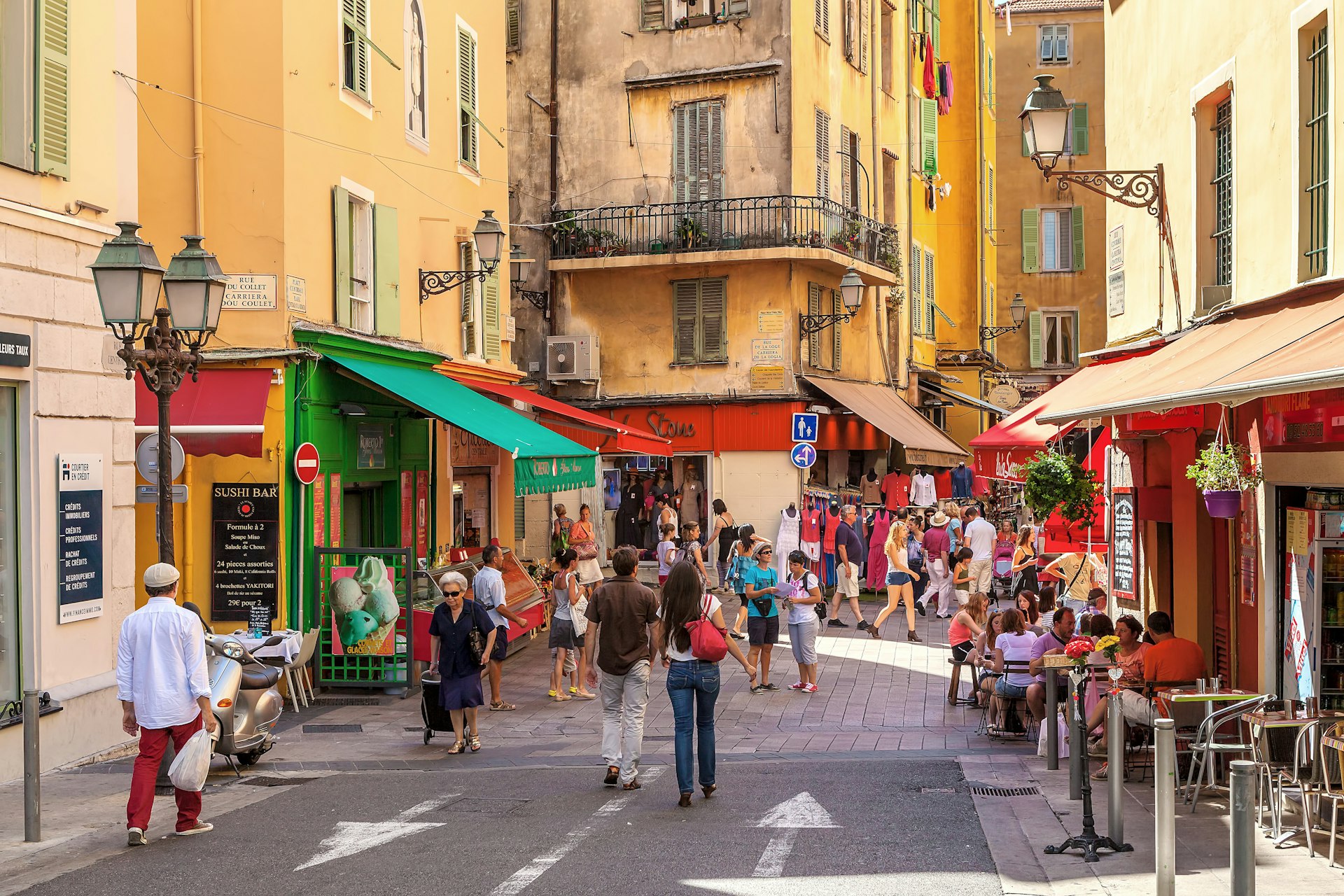
Think beyond Charles de Gaulle Airport in Paris
France’s largest airport is often the default arrival destination for visitors to France – but landing in the main hub can come at a premium. Instead, look into flights to Paris’ Orly or a regional airport. If you are headed to Provence, and without plans to pass through Paris, it might work out to book a seat on a discount carrier into, say, Marseille or Nice .
Trains and buses also crisscross France from countries throughout the EU. What’s more, train stations are usually smack in city centers, saving time and money on transfers.
Be inspired to take the train in France with these top routes
Pick your season well
You will pay more to travel to France in the summer. If at all possible, aim for the shoulder and off seasons. The weather throughout France is delightful in May and September, and often in April and October, so consider a fall or spring trip. And if you’re willing to bundle up and see a different side of the France you know from movies, winter has its charms, too.
Ready to start planning your trip? Choose the right time to visit France with our seasonal guide
Embrace the prix fixe menu
Different from its English meaning, le menu in French is a two- or three-course meal at a fixed price. It’s by far the best value in dining – and most bistros and restaurants offer the option, usually displayed in chalk on a board. Lunch menus – generally the best value you’ll find – occasionally include a glass of wine and/or coffee; dinner menus in gastronomic restaurants sometimes pair a perfectly matched glass of wine with each course. (Just remember that “prix fixe” in French is pronounced “pree fiks.”)
Eat cheap with set lunchtime menus and plats du jour
Lunchtime formules (two courses) and menus (three courses), plus super-deal plats du jour (dish of the day) in restaurants, cost a fraction of the price of evening dining. If you have your eyes on a Michelin-star meal, plan to go at midday.

Pick up a picnic at the abundant local markets and shops
With its bucolic scenery and outstanding produce, France is a picnicker’s paradise. Buy a baguette from the boulangerie (bakery) and fill it with Camembert, pâté or charcuterie (cold meats) from the local street market. Finish sweet with macarons (in Paris), buttery kouign-amann ( Breton butter cake), cherries (southern France) or – for blue-blooded gourmets – champagne and biscuits roses (in Reims ).
Keep the kids on the menu enfant
Two- or three-course kids’ meals at a fixed price (generally for children up to the age of 12) are usually a steal. They also often include a drink.
Wine taste on a budget
Wine can be bought direct from the producteur (wine producer) or vigneron (winegrower), most of whom offer an on-site dégustation (tasting) that allows you to sample two or three vintages with no obligation to buy. Thanks to ample production, wines in France cost pennies on the dollar compared to most other places. Lists of estates, caves (wine cellars) and cooperatives are available from tourist offices and maisons des vins (wine houses) in main towns in wine-producing areas. And supermarkets offer delicious vintages at bargain prices.
For even cheaper reds and whites ( vins de table , which can still be delicious by international standards), spend €2 to €4 per liter to fill up your own container at the local wine cooperative: every wine-producing village has one.

Savor France’s delicious bargain foods
- Chestnuts come served piping hot in paper bags on street corners in winter.
- Socca are chickpea-flour pancakes typical of Nice on the Côte d’Azur .
- Pan bagnat is the crusty Niçois tuna sandwich that comes dripping in fruity green olive oil.
- A Flammekueche ( tarte flambée in French) is an Alsatian thin-crust pizza dough topped with sour cream, onions and bacon.
- Croques monsieur are toasted ham-and-cheese sandwiches; cheesy croques madame come topped with an egg.
- The best glaciers (ice-cream makers) in France include Berthillon in Paris, Glaces Geronimi and Raugi in Corsica and La Martinière in St-Martin-de-Ré. A scoop of myrtle, chestnut, lavender, artichoke or Camembert ice cream, anyone?
- Crêpes – the large, round, thin sweet pancakes renowned throughout the world – are cooked at street-corner stands while you wait.
- Galettes are their savory, usually gluten-free cousins, made with buckwheat flour and typically served with fromage (cheese) and jambon (ham).
- Pissaladière , the traditional Niçois “pizza,” comes topped with salty anchovies and sweet caramelized onions.
- Beignets au brocciu are Corsican deep-fried doughnuts, sweet or savory, filled with the island’s local cream cheese.
- Gougères , the utterly irresistible, cheesy pastry puffs associated with Burgundy , usually accompany an aperitif but are delicious as a cheap snack too.
Be strategic in where (and how) you sleep
There’s no need to book multiple rooms for your family. It’s cheaper for families staying in hotels to ask for a double room with two beds rather than a triple-occupancy room. Families of four or more will find self-catering accommodation cheaper, and if you plan ahead you’ll be spoiled for choice.

Linger in cafes and wander the streets for a dose of French culture
Remember that in France, once you pay for a drink at a cafe, the table is yours indefinitely. Settle in and people-watch, post your Insta pics or text the night away.
Since so much of the magic of France resides in its village streets, country lanes and historic buildings, soaking in the culture of the country can be straight-up free. Wander freely on your own – or if you’d like to know more, enjoy free walking-tour brochures or even audioguide apps from the local tourist offices.
Check out free-admission days and discount passes for city sights
Most cities in France offer a single pass offering bundled and/or discounted admission for museums and other attractions. Check online at the local tourist office site (or in person) before you buy individual admission tickets to see if the pass will net you savings on what you want to visit. In many cities, some museums and municipal sights offer free admission on the first Sunday of the month.
Bring your student or senior ID to get in free or cheap
If you are a student, a youth or over 60, be sure to travel with your ID: many sights offer free admission provided you can prove your status.

Book in advance for the most affordable train tickets
France’s train system is extensive, easy to use and affordable. With rail passes and slower intercity services, you can ride the network for less (while keeping in mind that national rail company SNCF’s cheapest tickets are non-refundable).
The SNCF’s most heavily discounted tickets are called Prem’s, and they’re available online, at ticket windows and from ticket machines. Look for “100% Prem’s,” which are available from Thursday evening to Monday night, for last-minute travel that weekend. Saturday-return Prem’s are valid for return travel on a Saturday, while three-month Prem’s can be booked a maximum of 90 days in advance. Prem’s are nonrefundable and non-changeable.
Intercités 100% Éco can be booked from three months to the day of departure, and offer cheap tickets between any stops, in any direction, on four main lines: Paris–Toulouse, Paris–Bordeaux, Paris–Nantes and Paris–Strasbourg. A single fare costs €15 to €35.
The most expensive services are high-speed trains (the famous TGV), but if you book well in advance or when there are promotions, you can snag super-discounted tickets even on these.
Look into regional-train discount fares
Some of these fares don’t require a discount card or advance purchase. For example, Loisir rates are good for return travel that includes a Saturday night at your destination or involves travel on a Saturday or Sunday. And Découverte fares are available for low-demand “blue-period” trains for people ages 12 to 25, seniors and the adult travel companions of children under 12.
See if your family or friends can travel as a group
Mini-Groupe train tickets in some regions bring big savings for five to nine people traveling together, provided you spend a Saturday night at your destination.
If you’re over 60, get a Carte Avantage Senior for train travel
For €49, the Carte Avantage Senior pass offers many discounts, including 30% off trips year-round and 60% off tickets for up to three children traveling with you. Also, you’ll enjoy free ticket exchange and refunds up to three days before your departure.

Park strategically
Many medium-sized towns have concentric parking zones, with the highest per-hour fees and shortest time limits in the city center, with cheaper, less restricted parking a bit farther out. It often makes sense to park on the edge of town and take public transit into the center. Some towns even have free shuttles – navettes – from parking lots to the center.
Fill up the car away from the freeway
Filling up (faire le plein) is most expensive at autoroute rest stops and is usually cheapest at super- and hypermarkets such as Carrefour, Intermarché, Leclerc and Super U.
In city centers, stick to public transit
It’s a fool’s errand to try to drive and park in the center of Paris or other larger French cities. Train stations are super-convenient to metro stations, tram lines and bus routes., so buy a local transit pass and hit the pavement.
Oh, and that Seine river cruise with champagne?
BYOC (bring your own champagne) from the supermarket and hop on Paris’ Batobus to head down the Seine. A day pass costs €23 with stops at nine places along the way
This article was first published Aug 2, 2022 and updated Apr 12, 2024.
Explore related stories

Tips & Advice
Jun 14, 2024 • 7 min read
Taste your way around Brittany through these 10 unique – and uniquely tasty – dishes and drinks, from savory crêpes to decadent salted-butter caramel.

Jun 13, 2024 • 7 min read

Jun 6, 2024 • 8 min read

May 29, 2024 • 4 min read

May 14, 2024 • 10 min read

May 7, 2024 • 5 min read

Mar 21, 2024 • 6 min read

Feb 27, 2024 • 6 min read

Dec 25, 2023 • 11 min read

Nov 28, 2023 • 4 min read

Practical information for Games Ticket Holders
You're getting ready to experience the Games for real, in the stands, with your loved ones: a once-in-a-lifetime experience.
On this page, you'll find all the information you need to make the most of your visit and prepare yourself for an unforgettable experience. Whether you need information on compulsory documents, transport, accommodation, access to the competition venues, spectator services, you’ve come to the right place!
BEFORE YOU TRAVEL
Prepare for your trip with peace of mind by finding out what you need to do before coming to France.
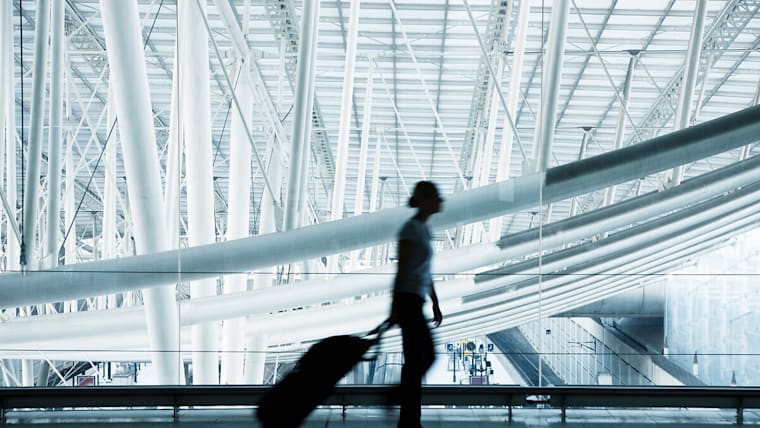
Getting to and around France
All the transport information you need to know about coming to France, travelling within the country and reaching the host cities.

Accommodation
Read our advice on finding accommodation during the Games.

TRAVELLING TO THE GAMES?
Get ready with Worldwide Olympic Partner, Allianz. You enjoy the action. We’ll do the rest.

Practical information accessibility
Do you have a dedicated Paris 2024 Games ticket for people with disabilities or wheelchair users? This page gives you all the practical information you need about the accessibility of the various services.
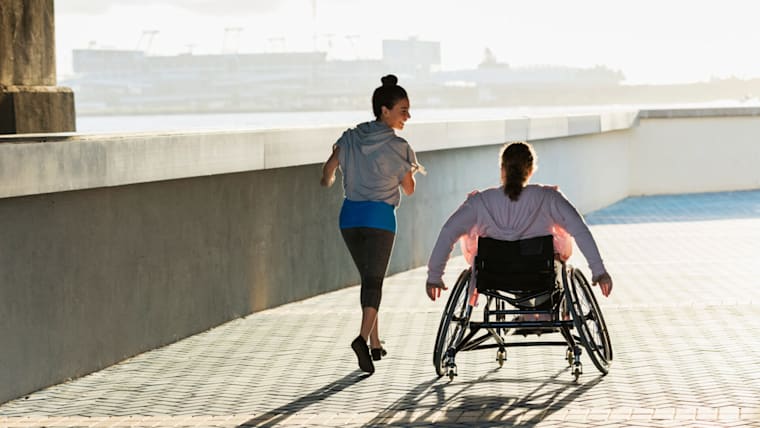
Getting to the competition venues
Get ahead by discovering the transportation arrangements put in place to reach the competition venues.
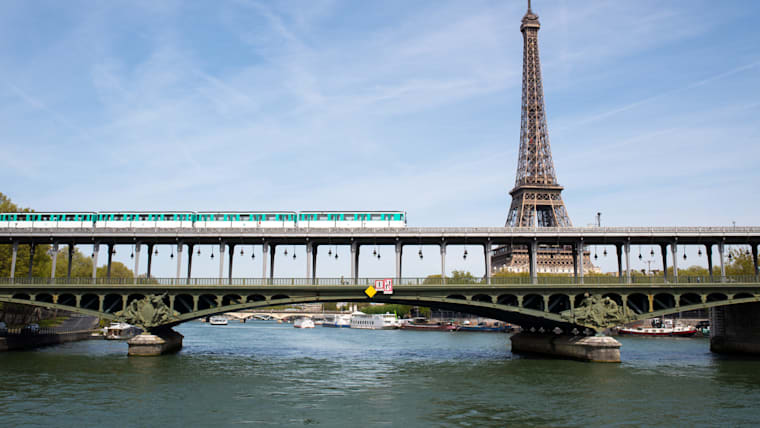
Make the most of your stay
Extend the magic of the Games by visiting France and taking part in the celebrations organized throughout the country.

GETTING DRESSED FOR THE GAMES
Get dressed now in the Olympic colours by visiting the official Paris 2024 online store or by visiting one of our physical stores.

Questions? Contact us
What documents do I need to travel to France during the Paris 2024 Olympic and Paralympic Games?
Individuals from non-EU countries must meet specific conditions according to prevailing regulations for entry into the Schengen area.
I've bought tickets for the Games: how and when will I receive the key information I need to prepare for my visit?
From today, you can find the first key information to prepare your arrival on the website.
In September 2023, an initial e-mail was sent to you to help you prepare for your visit.
Subsequent e-mails will be sent on a regular basis, particularly in 2024.
A Spectator's Guide and an official Paris 2024 mobile application will be released in spring 2024 to help you prepare.
How long before the start of a session should I arrive at the competition venue?
To ensure you have the best experience, Paris 2024 recommends arriving at the competition venue 1.5 hours before the start of the session.
WORLDWIDE PARTNERS


IMAGES
VIDEO
COMMENTS
Call us in Washington, D.C. at 1-888-407-4747 (toll-free in the United States and Canada) or 1-202-501-4444 (from all other countries) from 8:00 a.m. to 8:00 p.m., Eastern Standard Time, Monday through Friday (except U.S. federal holidays). See the State Department's travel website for the Worldwide Caution and Travel Advisories.
When in France, please carry a photocopy of your passport separately from your passport. The copy will facilitate issuance of a replacement ($75 fee for adults, $85 for children). The American Embassy in Paris is at 2, avenue Gabriel, tel. 01 43 12 22 22. The Passport Section is nearby at 4, avenue Gabriel (open 9a.m.-noon, Monday- Friday).
When traveling to France, please note that the Government of France does NOT recognize the 12-page U.S. emergency passport, issued by U.S. embassies and consulates overseas, as a valid travel document for visa-free travel, and, if traveling on this emergency passport, you may be refused boarding and/or entry to France by immigration officials.
Your Covid-19 questions answered. French people who are living abroad, travelling or returning from abroad, as well as visitors from abroad, will find answers below to frequently asked questions on COVID-19 measures. This FAQ supplements the information on the Conseils aux voyageurs (Travel advice, in French only) section.
Studying in France: Campus France; French Ministry of Education: C.I.E.P. Official website of the French Government; Official website for tourism in France (Atout France) Business France: The national agency supporting the international development of the French economy; French Customs: Trouble-free travel guide, Dec. 2016 (.pdf, Douane.gouv.fr)
Brochure coming to France for treatment (pdf) Stay exceeding 3 months . Your situation; You want to visit France for private reasons, for a period exceeding 3 months without engaging in any professional activity during your stay. Your visa; You must apply for a long-stay "visitor" visa. You will be issued with a long-stay visa serving as a ...
STEP 2 - Set up my online application Fill out the visa application form. To submit a visa application, you must provide at least the following : A travel document (original + copy) in good condition, issued less than 10 years ago, with at least two blank pages, which is valid for at least three months after the date on which you have planned to leave the Schengen Area, or in the event of a ...
Upon your arrival in France, you will be subject to administrative obligations to transform your visa into a regular residence permit. These formalities will also allow you to access the services and benefits provided by the French administration. They differ depending on the visa issued to you. Long-stay visa with the obligation to apply for a ...
The main steps in applying for a visa. Applying for a French residence permit. All foreign nationals wishing to enter France must be able to submit statutory documents at the border concerning the reasons for their stay, their means of support and accommodation arrangements. A visa is generally required, in the absence of a waiver.
Latest FCDO travel advice for France including on entry requirements, ... Read about documents you may need for short stays on the French ... You can travel to countries in the Schengen area ...
COVID-19 : International travel. Mobilising on a weekly basis up to 6,000 members of the civil security service to carry out tests, border guards to check travellers' health documents and internal security forces to oversee the isolation or quarantine measures decreed by the prefects, this mechanism was duly adjusted in response to the ...
The validity period for Covid-19 tests is short: usually a few days before departure or arrival depending on the country. Visit TravelDoc to find out when to get tested before you travel. For more information on all domestic flights within France and flights to/from Corsica, please visit our FAQ on the health pass in France.
The health documents required for travel to France may vary depending on the current health situation, such as during a pandemic. It is recommended to check the latest health guidelines on the official French government website or the European Union travel page. These documents may include a negative COVID-19 test, a vaccination certificate, or ...
Burglars sometimes target houses or holiday rental apartments. While in France: be vigilant, particularly when approached by strangers. ensure that your belongings, including passports and other travel documents, are secure at all times. avoid showing signs of affluence and carrying large sums of cash.
If Ofpra grants you refugee status, you will receive a residence permit valid for 10 years. If you wish to leave France to travel, a travel document can be issued. In addition, you also receive ...
Whether you are an urban tourist, a hiking or cycling enthusiast, an art lover, a wine and food lover or a beach lover, France is for you! France is a sporting country. France also hosts many international sporting events. Some are regular fixtures, such as the French Open tennis tournament, the Tour de France or the 24-hour race in Le Mans.
Still current at: 13 June 2024 Updated: 7 June 2024 Latest update: Updated information on potential travel disruption due to industrial action ('Safety and security' page).
For international tourists wishing to visit both France and the UK on the same trip: EU, EEA and Swiss citizens can travel to the UK visa-free for holidays or short stays. A passport valid for the duration of the stay is required to enter UK territory. Until 1 October 2021, it is also possible to travel with a valid national ID card.
Add Visa add Add Residence Permit add Add Seaman Book add Add other travel documents add. Who do you want to display results for? Adults Children. The information on this website is compiled by a dedicated team of researchers who liaise with immigration authorities, government departments and health agencies worldwide in order to ensure the ...
The republican identity document (TIR) enables certain foreign minors residing in France to travel and prove their identity. The person with parental authority for the child must make the application and provide the supporting documents. The document is issued and can be renewed or replaced by the police station (préfecture or sous-préfecture).
To view the Reciprocity Page for your country* of nationality, select your country*/area of authority from the list of countries on the left side menu. On the Reciprocity Page, select the Visa Classifications tab from the column on the left. Select the type of visa you have applied for, such as a B-1/B-2 (temporary visa for business or pleasure ...
Documents requis pour voyager dans l'UE et les pays de l'espace Schengen. En tant que ressortissant (e) de l'UE, vous avez le droit de voyager librement dans les 27 pays membres de l'UE ainsi qu'en Islande, au Liechtenstein, en Norvège et en Suisse (pays non membres de l'UE mais membres de l' espace Schengen ) avec un passeport ...
Furthermore, the validity of documents authorizing stays in France has been extended for 3 months. In limited cases (particularly the transport of goods), foreigners with a short-term visa may be authorized to enter France. If you are French, naturally you can continue to enter France and travel to your home, along with your spouse and children.
Average daily costs in France. Dorm bed in a hostel: €18-30. Double room in a budget hotel: €60-90. Double room in a midrange hotel: €90-190. Double room in a top-end hotel: €190-350. Lunch menus (set meals): under €20. Lunch menus in gourmet restaurants: €20-40. Dinner at a top restaurant: menu €65; à la carte €100 ...
Original and photocopy of your supporting documents; 2 photos in ISO/IEC format; Downloadable guides (PDF) are available to help you complete your application: Gelişmiş Öğretici [Türkçe - TR] Розширена інструкція [українська мова - UK] учебник [русский язык - RU] Tutorial [Português - PT ...
From today, you can find the first key information to prepare your arrival on the website. In September 2023, an initial e-mail was sent to you to help you prepare for your visit. Subsequent e-mails will be sent on a regular basis, particularly in 2024. A Spectator's Guide and an official Paris 2024 mobile application will be released in spring ...
Soldiers landing in Normandy for 80th anniversary commemorations produce travel documents at temporary customs check ... Moment British paratroopers have passports checked after D-Day drop in France
A travel document for Palestinian refugees; A travel document for Palestinian refugees issued by the Egyptian, Lebanese or Syrian authorities. This requirement does not apply to holders of diplomatic passports. ... The same rules apply as for transit through metropolitan France (see above). If you wish to leave the international zone and enter ...